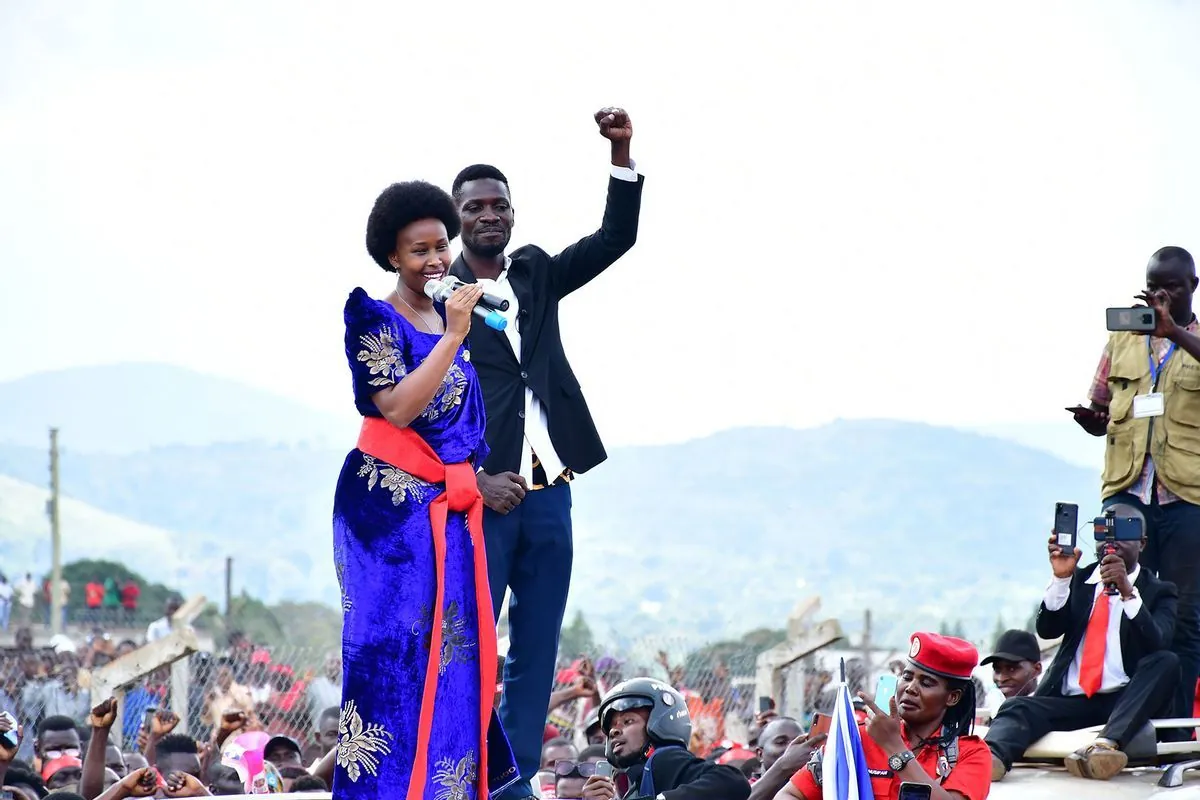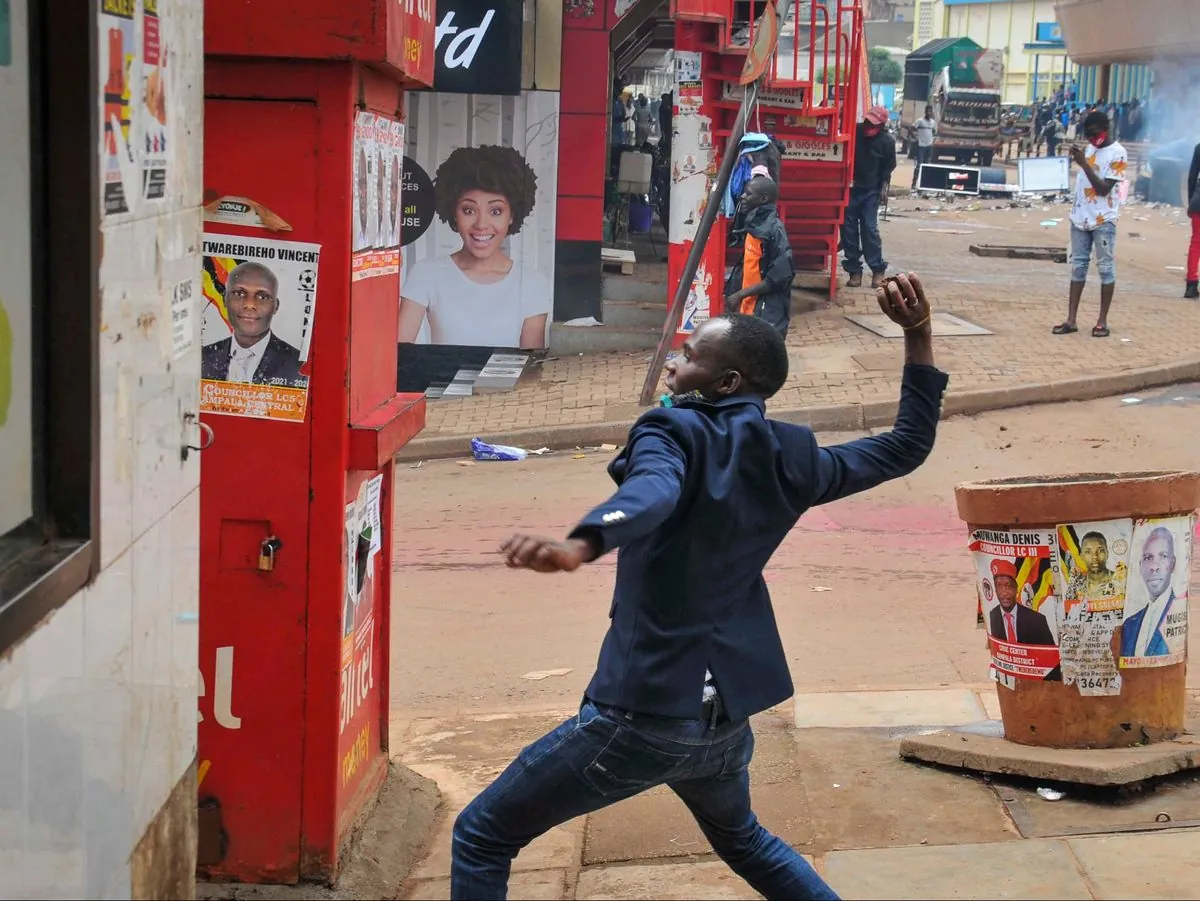Uganda Opposition Leader Bobi Wine Allegedly Shot in Kampala Suburb
Bobi Wine, Uganda's main opposition figure, reportedly shot by security agents in Kampala. Video shows Wine with a leg wound, assisted by party officials. Incident highlights ongoing political tensions in Uganda.

In a concerning development for Uganda's political landscape, Robert Kyagulanyi, widely known as Bobi Wine, was reportedly shot in the leg by security agents in a northern suburb of Kampala on Tuesday, September 3, 2024. The incident has reignited discussions about political freedom and opposition rights in the East African nation.
Wine, who leads the National Unity Platform (NUP), has emerged as a significant challenger to President Yoweri Museveni's long-standing rule. The alleged shooting occurred in the Bulindo neighborhood, where Wine was meeting with supporters. The NUP released a statement on social media platform X, asserting that security operatives had attempted to harm their leader.
Video footage circulating online shows NUP officials assisting Wine as he exits Najeem Medical Centre. The opposition leader appears to have a bleeding wound on his left shin and is visibly in pain. Local independent broadcaster NTV reported that the injury occurred during a confrontation when police used tear gas to disperse Wine's supporters.

The incident has drawn attention to the ongoing tensions between the government and opposition in Uganda. David Lewis Rubongoya, the NUP's Secretary General, condemned the action as "cowardly" and called for widespread denunciation of violence against political opponents.
Wine's rise to political prominence is rooted in his background as a successful musician. Born in 1982 in Mpigi District, he gained popularity as the "Ghetto President" before transitioning to politics. His journey from the music industry to becoming a formidable political figure has resonated with Uganda's youth, who make up a significant portion of the country's population of approximately 45 million.
The alleged shooting comes against the backdrop of Uganda's complex political history. The country gained independence from British colonial rule in 1962, and since 1986, President Museveni has held power. During this time, Uganda has faced criticism for its human rights record, despite making progress in areas such as reducing HIV/AIDS prevalence.
In the 2021 presidential election, Wine finished as the runner-up to Museveni. However, he rejected the results, claiming the vote was manipulated through various tactics, including intimidation and ballot stuffing. This dispute highlighted the challenges facing Uganda's democratic processes.
"Security operatives have made an attempt on the life of President @HEBobiwine. He was shot in the leg and seriously injured."
As Uganda grapples with this latest incident, questions arise about the country's political future and the space for opposition voices. The nation, known for its diverse wildlife and as home to Lake Victoria, faces the challenge of balancing its economic development, heavily reliant on agriculture, with ensuring political stability and respect for democratic principles.
The international community and human rights organizations will likely be watching closely as this situation unfolds, potentially impacting Uganda's standing on the global stage and its relationships with neighboring countries in the region.


































